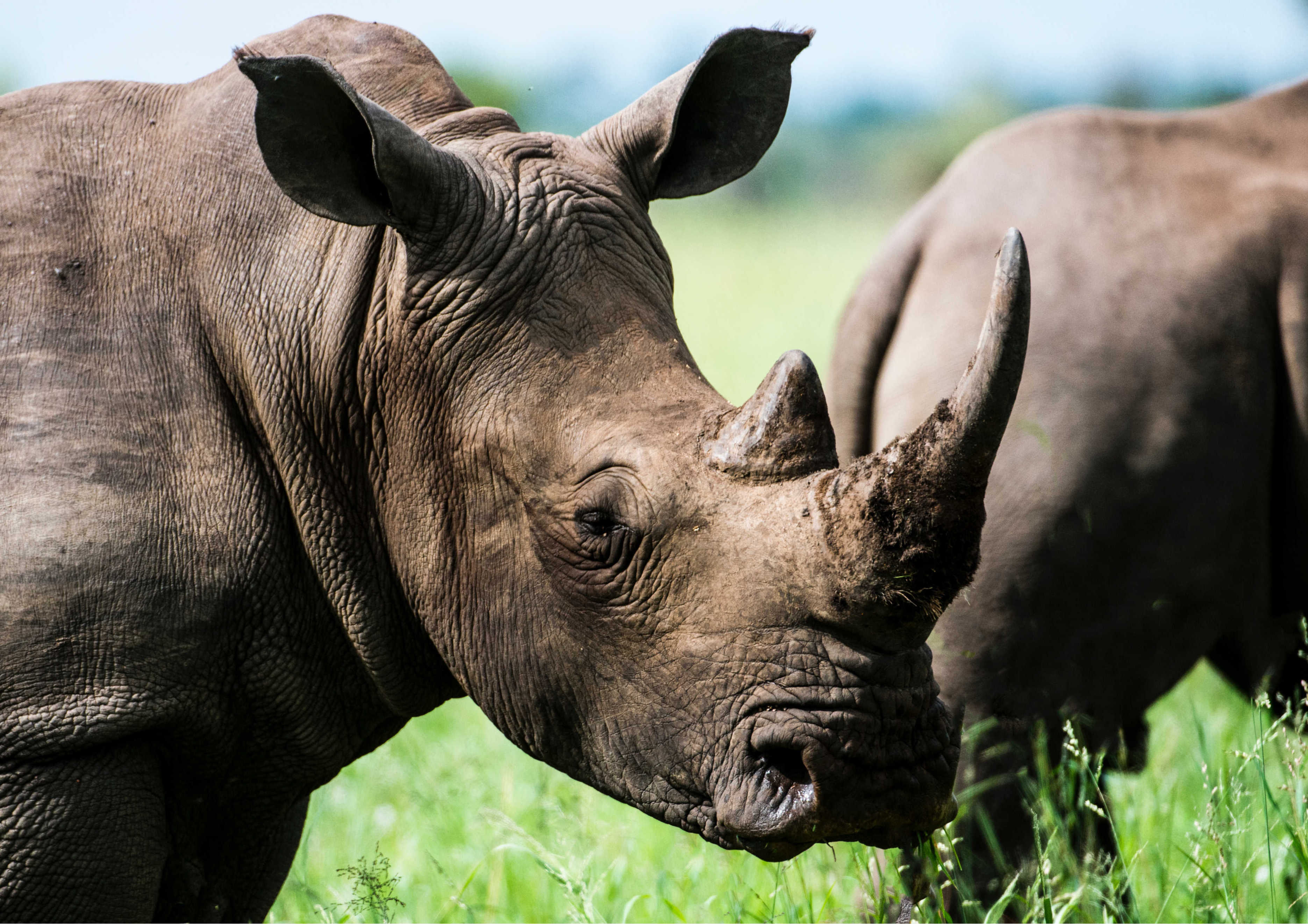 The CBD sits alongside other conventions dealing with wildlife issues, including CITES and the Convention on Migratory Species. Traditionally animal protection organizations have not played a large role in influencing CBD due to concerns about the prominence of the concept of “sustainable use” and “benefit sharing” which usually do not turn out well for the welfare of animals. However, CBD has become influential in setting the global agenda on biodiversity issues and this absence has not only allowed hunting and other animal-use groups to play an outsized role in shaping the CBD narrative and approach, it has also meant that the concept of sustainable use has begun to trickle into other policy streams, including the Sustainable Development Agenda, United Nations (UN) Environment Programme, other wildlife conventions and beyond.
The CBD sits alongside other conventions dealing with wildlife issues, including CITES and the Convention on Migratory Species. Traditionally animal protection organizations have not played a large role in influencing CBD due to concerns about the prominence of the concept of “sustainable use” and “benefit sharing” which usually do not turn out well for the welfare of animals. However, CBD has become influential in setting the global agenda on biodiversity issues and this absence has not only allowed hunting and other animal-use groups to play an outsized role in shaping the CBD narrative and approach, it has also meant that the concept of sustainable use has begun to trickle into other policy streams, including the Sustainable Development Agenda, United Nations (UN) Environment Programme, other wildlife conventions and beyond.
From 2010 to 2020, the CBD’s strategic plan comprised the Biodiversity Targets. These were agreed at a conference in Aichi Prefecture, Japan in 2010 and were a set of 20 goals meant to be implemented by the year 2020. The Targets have not been successfully implemented; however, they have had significant influence on global frameworks dealing with wildlife and biodiversity. For example, the Aichi Targets form the base for SDGs 14 and 15, many of which have targets that expire in 2020, rather than 2030, to ensure coherence across these policy streams. The strategy currently in development to replace the Aichi Targets will have a major impact on wildlife and biodiversity policy at national, regional and international level for the next decade, and a lack of ambition in the new framework holds the potential to seriously hamper progress on a variety of issues related to wildlife and agriculture.
Beginning in 2019, the CBD has hosted negotiations to develop the strategic plan meant to replace the expiring Aichi Targets. The next strategic plan is called the Post-2020 Global Biodiversity Framework (GBF). The GBF will act as a foundation towards the 2050 vision of "living in harmony with nature." The Conference of the Parties selected a consultative process which allows many stakeholders to participate and input into the negotiations. This process utilizes global, regional, and thematic consultations and workshops to decide what elements should be included in the framework’s final principles.
COVID-19 Outbreak Derails GBF Development
However, as the second negotiation slated for February 2020 approached, COVID-19 began to spread throughout the world. Due to the severity of the pandemic, development of the GBF has been delayed. This has lengthened the proposed development timeline and, in turn, has provided more time for stakeholders to prepare inputs. Technical meetings meant to feed into the development, such as the 24th meeting of the Subsidiary Body on Scientific, Technical and Technological Advice (SBSTTA) and the 3rd meeting of the Subsidiary Body on Implementation (SBI), have been postponed and will possibly be conducted virtually, which would also make attendance by NGOs more accessible. The third negotiation, which was originally slated for June 2020, has now been postponed to 2021, while it is anticipated that the final GBF will not be adopted until May 2021.
COVID-19 Raises the Questions About Society’s Use of Wildlife and Biodiversity
In addition to delaying the development of the GBF, the emergence of COVID-19 has reframed the discussions and called into question the overarching narrative of “sustainable use” and what types of uses of biodiversity, particularly wild animals, can be truly considered sustainable.
The consequences of COVID-19 have also highlighted the weaknesses of many systems including healthcare and agriculture. These weaknesses are exemplified in the lack of food security and nutrition across different regions. A few examples, as described by the Food and Agriculture Organization (FAO), include the disruption of food supply chains that rely on international or across-country transport. Processing facilities have been forced to slow production or shut down, leading to decreased supply and unemployment and/or income reduction have left families vulnerable to hunger. The current pandemic has demonstrated the fragility of a food system based on industrialization production which occurs far from consumers (and thus requires complex transport logistics), and the need for localized production and consumption, a shift towards healthy plant-based diets with less zoonotic risk and lower environmental impact, and more resilient production practices, including agroecological approaches and regenerative agriculture.
Furthermore, because COVID-19 has been linked to wildlife markets, it exposes the damage that occurs when animal welfare is not a policy priority. Filthy conditions and close confinement in industrial farms and/or markets where animals are raised and/or sold affect the animals as well as the humans in contact with them. It is well-documented that high stress conditions, such as those endured by animals in the wildlife trade or on factory farms, reduce the immune system capability of animals and increase the risk of disease transmission. The use of antimicrobials in industrial farming also increases the risk that emerging zoonoses will be resistant to treatments. In close confinement systems, especially with domestic animals lacking genetic diversity, conditions are simply ripe for disease. As we have witnessed with COVID-19 and Swine Flu before it, the poor treatment of animals, both on factory farms and in the commercial wildlife trade, poses a threat to us all. It is critical that these issues are addressed by the post-2020 Global Biodiversity Framework.
Opportunities for Better Approaches
As humans have had to adapt their daily routines, the economy, and social norms in response to the pandemic, they have had an increased chance to reflect on nature and our impact on it. The millions of people infected and the hundreds of thousands who have passed also demonstrate the urgent need for a new system. As a result, governments and citizens have now emphasized the need to implement better approaches when rebuilding these systems. Governments must take a holistic, multisectoral approach to prevent, or at least decrease the severity of future pandemics. One approach that embraces these values is the One Welfare framework.
One Welfare is a concept that examines and leverages the interlinkages between human, environmental and animal wellbeing. As an extension of the One Health concept, which has gained traction due to COVID-19, it provides a framework that addresses issues beyond health, including issues of livelihoods and food security. For the sake of future planet and human health, policies must keep low-income and marginalized communities, wild and domestic animals, and the environment in mind. COVID-19’s impacts on food security, healthcare, and job security demonstrate the linkages between environmental, animal welfare and human rights. Moving forward, international and development policies must eliminate silo thinking and choose a holistic approach, in order to protect the needs of all groups of people. Adopting a One Welfare approach would make a meaningful contribution to an effective and forward-looking post-2020 Global Biodiversity Framework in this regard.
Next Steps for the Animal Protection Movement
Through the new political context and the delayed calendar of events, animal protection organizations have an unprecedented opportunity to influence the development of the GBF. For this reason, more animal welfare organizations must become involved with CBD’s proceedings. The next decade of wildlife protection is depending on it.
There are multiple ways to influence the GBF. Stakeholders are invited to attend meetings, participate in consultations, and/or submit comments to discussions. Find an overview of preparations for the framework here.
Upcoming Opportunities at Time of Writing
- 6-10 July 2020: IPBES Nexus consultation
Find more information here: https://ipbes.net/notification_draft_review and here: https://ipbes.net/nexus-scoping-review-invitation
The Nexus assessment is the “thematic assessment of the interlinkages among biodiversity, water, food and health in the context of climate change.” - 7-16 July 2020: High-Level Political Forum (HLPF) on Sustainable Development 2020 (Virtual)
Find more information here: https://sustainabledevelopment.un.org/hlpf
As many of the Sustainable Development Goal targets related to biodiversity were linked to the Aichi Biodiversity Targets and set to expire in 2020, the 2020 HLPF may provide an opportunity to shape how these targets are managed for the next decade. See World Wildlife Fund's (WWF) guidance here for more information. - 27-31 July 2020: Intergovernmental Science-Policy Platform on Biodiversity and Ecosystem Services (IPBES) workshop on biodiversity and pandemics (Virtual) Find more information here:
https://ipbes.net/notification_workshop_biodiversity_and_pandemics
35 experts will discuss links between biodiversity and the current and future pandemics. This workshop was created to widen the knowledge base around the origin of zoonoses and what can be done to prevent future outbreaks. - 22-23 September 2020: Summit on Biodiversity
Find more information here: https://www.cbd.int/article/Summit-on-Biodiversity-2020
This event is hosted by the UN General Assembly. - 2-7 November 2020 (tentative): 24th meeting of SBSTTA (Venue to be determined, Canada)
Find more information here: https://www.cbd.int/convention/sbstta/meetings.shtml
The SBSTTA is an intergovernmental scientific advisory body that was formed to provide advice and assessments to the Convention on Biological Diversity’s Conference of Parties (COP). - 9-14 November 2020 (tentative): 3rd meeting of the SBI (Venue to be determined, Canada)
Find more information here: https://www.cbd.int/meetings/SBI-03
The SBI reviews implementation progress and forms strategic actions to strengthen implementation. - 7-15 January 2021: International Union for Conservation of Nature (IUCN) World Conservation Congress 2020 in Marseille, France
Find more information here: https://www.iucncongress2020.org/
The IUCN Congress includes international government bodies and civil society organizations that vote on major issues and propose actions regarding human interactions with the planet. As this occurs in the lead up to the GBF negotiations it is likely to provide a platform to influence the process. - 22-26 February 2021: UN Environment Assembly 5 (Nairobi, Kenya)
Find more information here: https://environmentassembly.unenvironment.org/unea5
While not directly related to the CBD, it is expected that with the new timing of meetings that UNEA5 will become an important milestone on the path to the GBF. - 1st quarter of 2021 (tentative) 3rd meeting of the Open-ended Working Group on the Post-2020 Global Biodiversity Framework
Find more information here: https://www.cbd.int/meetings/WG2020-03
This meeting will discuss the advice compiled by the SBSTTA and SBI. - 2nd Quarter of 2021 (tentative): 15th meeting of the Conference of the Parties to the Convention on Biological Diversity (Kunming, China)
Find more information here: https://www.cbd.int/meetings/COP-15
The GBF will be finalized and agreed at this meeting.
The pandemic and its link to human impact on nature and animals have led to animal health issues becoming mainstream. For this reason, it is important for us to use this momentum and ensure that animal protection organizations’ concerns are heard, and that the wellbeing of animals is not ignored. If your organization is interested in joining us in advocacy at the GBF, please contact us for more information.

